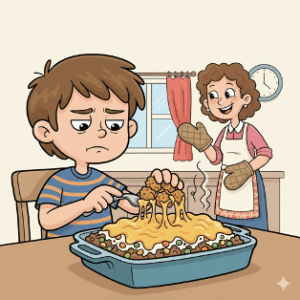Do's and Don'ts of Celebrating MLK Day
https://www.learningforjustice.org/professional-development/dos-and-donts-of-celebrating-mlk-day
Writing in The Washington Post in 1983, Coretta Scott King provided a vision of how the holiday honoring her husband
should be observed:
""The holiday must be substantive as well as symbolic. It must be more than a
day of celebration . . . Let this holiday be a day of reflection, a day of teaching
nonviolent philosophy and strategy, a day of getting involved in nonviolent
action for social and economic progress.""
The list is divided into three aspects of daily school and classroom settings: displays, curriculum and discussions.
DISPLAYS
DO display inspirational images and quotes representing Dr. King throughout the school year and throughout the
school building. His message of tolerance and nonviolence could be reinforced in P.E. classes and in the cafeteria — two
locations that are most often prone to bullying and isolation. The Mix it Up program provides anti-bullying lessons and
activities that support the tolerant message of Dr. King.
DON'T limit King's message to the classroom space nor to the months of January and February. Don't overuse images
of King delivering a speech to a crowd; profile images; or images of King pointing upward toward the light. These
images can be found anywhere and can limit his diverse character.
DO identify and display images of Dr. King in nontraditional settings. Search the Internet and picture books for images
of King as a student in a classroom setting, in a library, relaxing with his family, reading a book, eating a meal, laughing
or participating in some other leisurely activity.
CURRICULUM
DO incorporate service-learning activities as an effective tool for teaching tolerance and reducing student bias. Service
learning combines community service and in-school curriculum. By pairing community involvement with classroom
learning, service learning also increases the likelihood students will gain a more nuanced understanding of social issues,
and that they will learn to empower — not "help"— often-marginalized communities.
DO introduce students to the many inspirational words of Dr. King dealing with many diverse issues. Search the
Internet for speeches not often read in their entirety. Discuss the deeper meanings embedded within his messages.
Decipher metaphors. Have students interpret King's messages in their own words.
DON'T forget that King's message went beyond "Black and White;" he also dealt with issues of gendered stereotypes,
poverty and privilege. Don't overuse the more famous King speeches like: "I Have a Dream", "I've Been to the Mountain
Top", "Letter from a Birmingham Jail". If they are your favorites, use higher levels of critical thinking to engage the
students in dialogue and activities—move beyond the quotes.
DO Use books and materials which are written and illustrated by African-American people as primary source materials:
speeches, songs, poems, and writings, which show the linguistic skill of a people who have come from an oral tradition.
The National Council of Teachers of English has a list of African American authored books. Host an African-American
Read-In on February 3rd to encourage additional reading.
DON'T limit your resources to the more traditional annual mainstream press reproducibles. Do not wait until the third
Monday of January or Black History Month to discuss the great impact Dr. King had on our nation and throughout the
world.
DO teach about the life and legacy of Dr. King as a part of your regular social studies curriculum throughout the
academic year.
DO encourage students to discuss the legacy of Dr. King with elders who might have been alive during the Civil Rights
era.
DON'T assume that all stories will be positive ones. Be prepared to debrief and debunk myths and opinions while
maintaining the authenticity of individual opinion.
DO acknowledge that racism, bias and inequalities are ever present. As you include community perception about Dr.
King and the struggle for Civil Rights, the voice of intolerance may be heard. Welcome the critique and teach students to
challenge it with factual evidence.
DON'T treat racism and inequality as relics of the past. Hate still exists, even if it takes on a disguise.
DO invite elders from student families and the community to visit with the class and share personal reflections. If they
weren't directly involved with the nonviolent Civil Rights Movement led by King, perhaps they remember hearing him
live over the radio or on television. Maybe they recall what it was like to pick up their local newspaper and see him on
the front cover.
DISCUSSIONS
DON'T assume that all Black children and their families are experts on the Civil Rights Movement and/or the life and
legacy of Dr. King. Remember too that Whites were very active participants in the Movement, as were members of other
ethnic groups.
DO explore the depth of negative insights about Dr. King if they arise. Use this teachable moment to discuss human
nature and personal flaws. Have students identify personal strengths and weaknesses. Brainstorm on notable figures
throughout our community, our government and in pop-culture who are held to high standards by the public but make
mistakes nonetheless.
DON'T ignore their concerns and make Dr. King out to be an infallible creature. In doing this you might mislead
students to believe that human "perfection" is attainable, causing feelings of low self-esteem.
DO emphasize Dr. King's message of nonviolence in all aspects of school, family and community life. Teach students
about Dr. King's strong commitment to social justice and change through nonviolent protest despite the threat of
violence against himself and his family.
DON'T let teachable moments pass you by. When students resort to violence as a response to hurt and anger,
acknowledge their emotion and empower them with alternative means of expression.


No comments:
Post a Comment